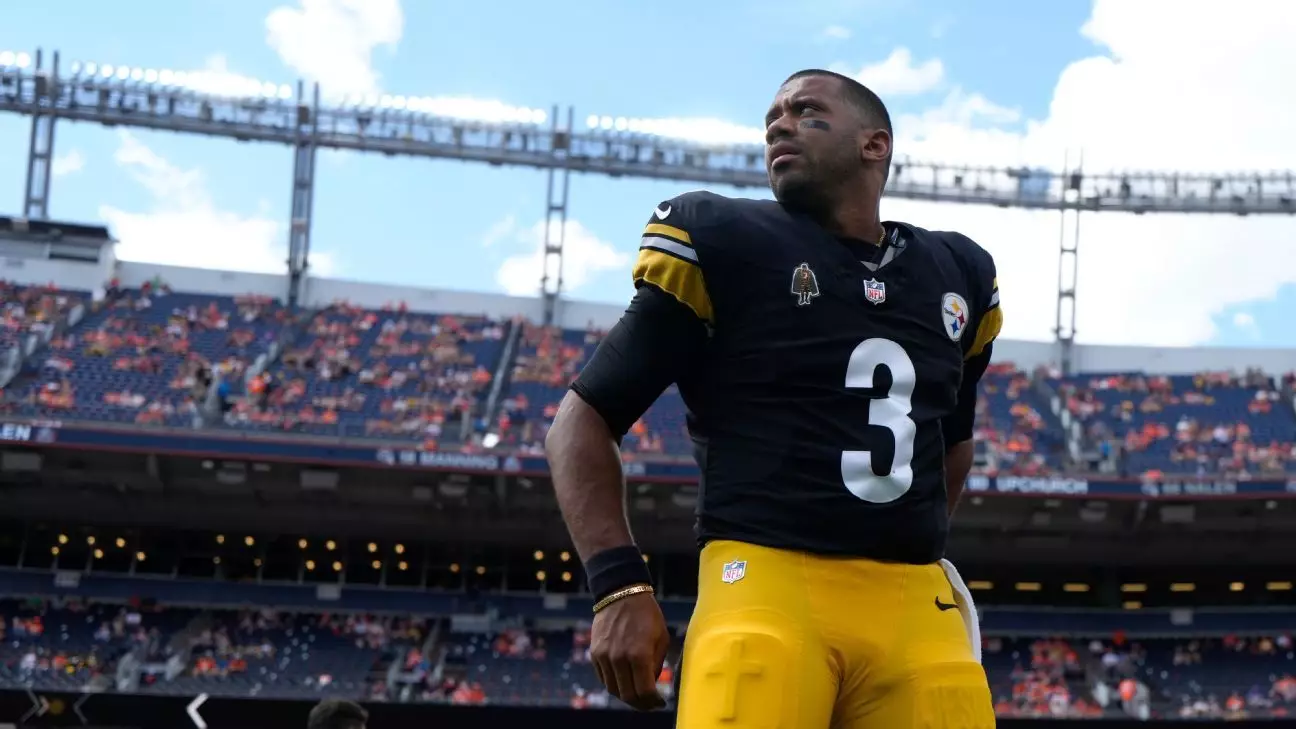In the battleground of the NFL, emotions often run high not just due to competitive vigor but also personal history. A recent game between the Pittsburgh Steelers and the Denver Broncos showcased this dynamic in an unexpected tribute to quarterback Russell Wilson. Though Wilson did not play in the game, an emotional nod from Coach Mike Tomlin illuminated past grievances within the league, showcasing the thin line between sports rivalry and personal relationships.
The Game Ball Syndrome: A Gesture of Respect
One might assume that a game ball is primarily a recognition of performance on the field; however, Coach Tomlin introduces an intriguing twist to this concept. By presenting Wilson with a “petty game ball” following the Steelers’ hard-fought victory over the Broncos, Tomlin subtly acknowledged not only the win but the undercurrents of Wilson’s turbulent past in Denver. The label “petty” here may hint at the playful jabs between ex-teammates—an innocent custom that speaks volumes about the sport’s deep-rooted camaraderie. Such gestures resonate well within the players’ community, upholding relationships while allowing for a hint of competitive spirit.
Wilson’s career trajectory has experienced significant highs and lows. Once seen as one of the league’s premier quarterbacks, he faced a monumental shift in fortune following his move to the Broncos, culminating in an early exit from Denver only two years into a staggering five-year, $242.6 million contract. His journey, which includes the battle against an aggravated calf injury that kept him sidelined during this particular match, symbolizes a broader narrative of resilience amidst adversity. Fans can’t help but empathize with Wilson, who—despite being benched and released—remains connected to the franchise that once defined his career.
Beyond the personal angles, it is essential to note Wilson’s pre-game rituals as he walked onto the familiar grounds of Denver. Engaging with former teammates and coaches reflects a thoughtful return, emphasizing that the sport extends far beyond mere competition. Wilson’s interactions speak volumes about his character, where relationships hold deeper significance than transient victories or defeats.
Another compelling factor in this narrative is Wilson’s role on the Steelers as the third quarterback. Observers might question the prospect of a player once hailed as an elite quarterback now relegated to emergency status. His lack of game action in such a high-stakes contest starkly contrasts with the high notions held towards him earlier in his career. This situation brings to light one of professional sports’ harsh realities: talent alone does not guarantee consistent starting positions, especially in an evolving landscape where young talent like Justin Fields emerges and seizes opportunities.
Fields, in his second start as a Steeler, showcased flashes of brilliance early in the game but struggled to maintain rhythm as the game progressed. His performance underscores the challenges young quarterbacks frequently face in adapting to fast-paced games where momentum can swing drastically. Although Fields’ initial completion percentage appeared impressive, the decline in productivity raises concerns regarding reliability under pressure—factors critical for success in high-stakes games such as this.
Despite the ongoing narrative of rivalry and competition in the NFL, there lies an underlying theme of friendship that can occasionally shine through. Wilson’s comments about appreciating the relationships he founded while in Denver illustrate this notion. The spirit of sportsmanship transcends the field’s physical combat, resonating deeper connections—ones that “strapping on black and gold” cannot erase.
The Pittsburgh Steelers’ game against the Denver Broncos may not have produced the fireworks of a Wilson-led showdown, but it succeeded in paying homage to shared memories and camaraderie. Tomlin’s choice to honor Wilson with a “petty game ball” encapsulates a world where respect and relationships foster a culture of loyalty among competing athletes. As the NFL continues to transform, one can only hope that players, regardless of their paths, cherish the inherent humanity in competitive sports.


Leave a Reply